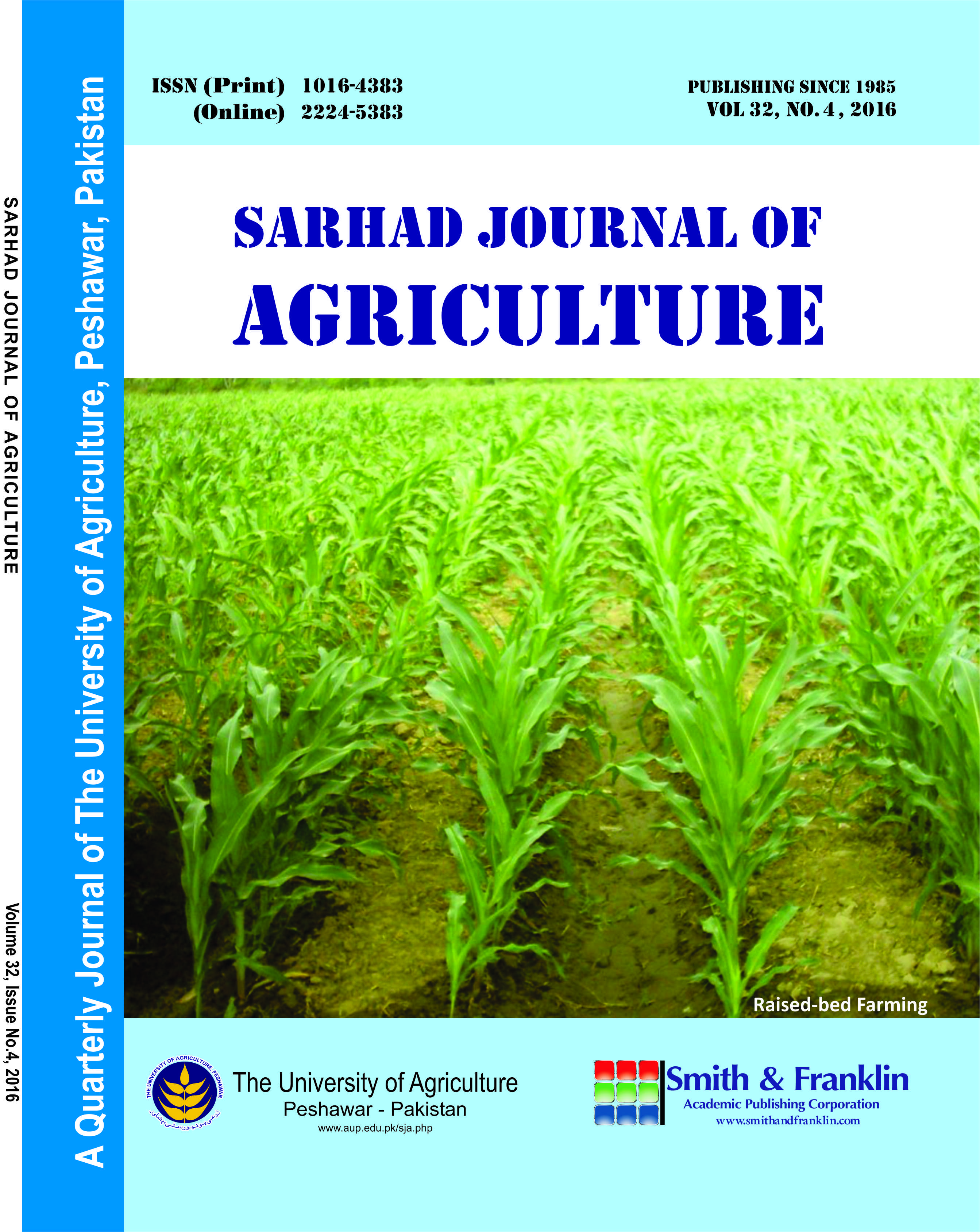The Biocidal Investigation of Various Extracts of Pleurotus eryngii Cultivated on a Substrate Supplemented with Berberis lycium
The Biocidal Investigation of Various Extracts of Pleurotus eryngii Cultivated on a Substrate Supplemented with Berberis lycium
Shahida Sabir1, Anwar Ali Shad1, Tariq Masood1*, Zafar Ali Shah1, Nasiruddin2, Yaseen Ahmad1 and Syed Sartaj Alam3
ABSTRACT
Effect of substrate supplemented with a medicinal plant (Berberis lycium L) was documented on days to 50% colonization, days to 100% colonization, yield per bag and % bio-efficacy of Pleurotus eryngii. It was found that maximum 20 and 34 days were taken by 50% and 100% colonization, respectively on 25% supplemented B. lycium substrate compared to control treatment (17 days). The yield and bio-efficacy of mushroom was observed around 596.7 g per bag and 99% respectively at 25% supplemented B. lycium substrate. The P. eryngii mass was extracted with different solvents and showed promising results for the number of phytochemicals. Alkaloids were present in all fractions except n-hexane and petroleum ether while tannins were present in all the fractions. Flavonoids, lipids, terpenoids and glycosides were present in extracts at moderate to high concentrations. Methanolic fraction of mushroom proved to be bactericidal with highest % inhibition (65, 36 and 75 %) recorded at 25 mg/L concentration against all the three bacterial strains i.e., E. coli, Staphylococcus aureus and Xanthomonas sp., respectively. Maximum % inhibition (about 50%) was recorded at 25 mg/L concentration against all the three fungal species (Penicillium claviforme, Aspergillus flavus and Fusarium sp.). Methanolic extract of P. eryngii showed increasing % mortality against red flour beetle (Tribolium castaneum) in methanolic extract with increasing concentration after 24 and 48 h exposure time. Maximum mortality (100%) was noticed at 300 mg/L after 40 h exposure time. Hence, methanolic extract of P. eryngii can be used as a natural pesticide, especially in stored grains.
To share on other social networks, click on any share button. What are these?








